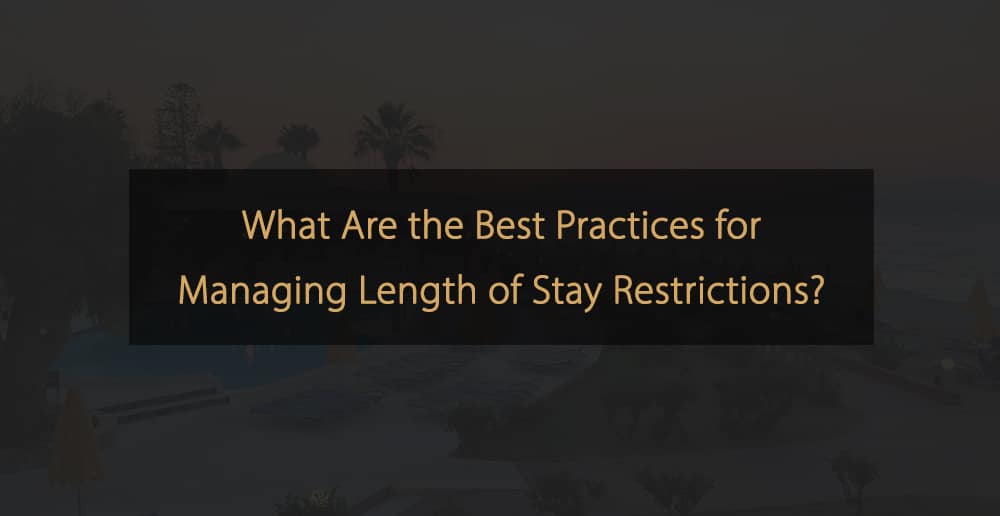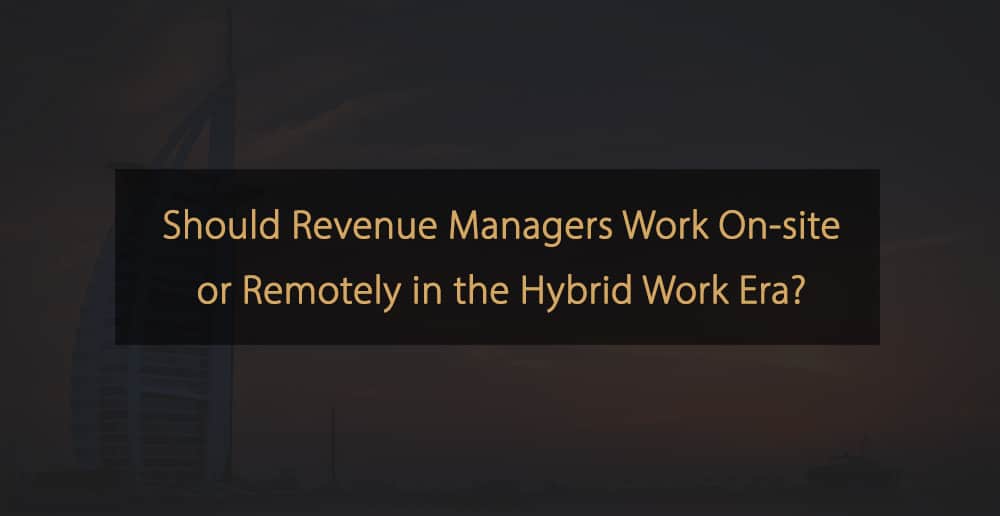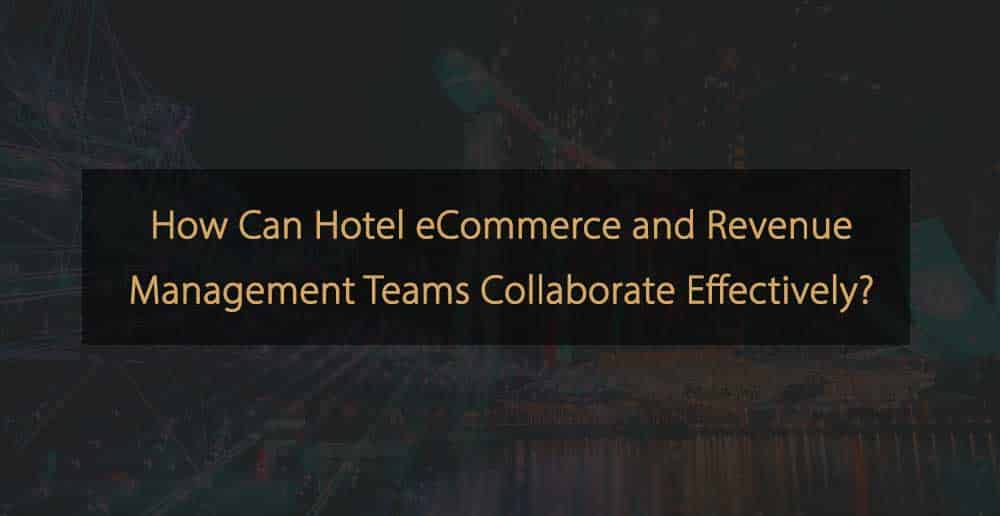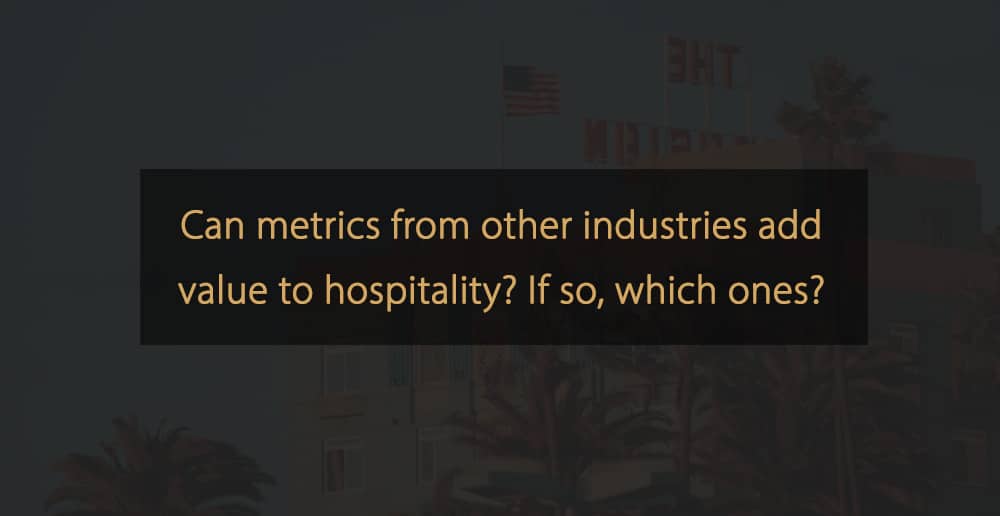Question for Our Revenue Management Expert Panel:
As there has been a significant increase in hybrid and remote working over the last few years, should the role of revenue manager be on-site or remote? And why? (Question by Oleksii Kapichin)
Industry Expert Panel
Our Industry Expert Panel exists out of professionals within the hospitality & travel Industry. They have comprehensive and detailed knowledge, experience in practice or management and are forward-thinking. They are answering questions about the state of the industry. They share their insights on topics like revenue management, marketing, operations, technology and discuss the latest trends.
Our Revenue Management Expert Panel
- Tamie Matthews – Sales & Marketing Consultant, RevenYou
- Connor Vanderholm – CEO, Topline
- Diego Fernández Pérez De Ponga – Director of Revenue Management, Palladium Hotel Group
- Heiko Rieder – Senior Vice President Commercial & Distribution, Step Partners Europe
- Niko Krauseneck – Founder, RevenueRebel
- Massimiliano Terzulli – Revenue Management Consultant, Franco Grasso Revenue Team
- Krunal Shah – Director of Revenue Management, The Biltmore Mayfair, LXR Hotels & Resorts
- Silvia Cantarella – Revenue Management Consultant, Revenue Acrobats
- Pablo Torres – Hotel Consultant
- Mariska van Heemskerk – Owner, Revenue Management Works
- Dermot Herlihy – Owner, Dynamic Hospitality Consulting
- Ask Our Panel a Question
- Join Our Expert Panel
“I am going to begin this answer by stating I have an intrinsic bias. I run a company that is entirely remote. We work with clients across APAC and only go onsite when requested. All work is completed remotely.
In saying that, the ability to work remotely is a skill that must be learned. The first rule of remote work is to over-communicate. Let your colleagues know what you are doing and what time frames you are working to. Let your colleagues know when you are online and when you can be contacted. Let your colleagues know when you are having a good day or a bad day. Let your colleagues know when you need help. Over-communicate to ensure that your manager knows what you are doing. But know that it is incredibly obvious when you are not working, as targets will not be met.
I have a team of 12 working for me and all work different contracts on different time zones across Australia and NZ. The team love the freedom and flexibility, but it doesn’t work for all. I have had former staff members leave when they realised they needed the structure of an office and I respect them for making that decision. Revenue and distribution is incredibly easy to do remotely. It just takes communication.”
“As someone whose team is completely remote, I am a proponent of such a model for my company. However, there are undeniable benefits to at least having site visits with the properties that an RM supports. These include experiencing the product from the guest’s perspective, creating a true, trusted advisership through spending time together, and even understanding the flow of traffic to your property. This is especially the case for full-service properties whose offerings are more unique compared to the cookie cutter nature of midscale and economy hotels.”
“It is based on the fact that the work of a Revenue Manager can be carried out from anywhere in the world, since 95% of all our tasks are in contact with technological tools. So theoretically, yes, the work can be done remotely. In fact, it is a tremendous competitive advantage, since if you can hire remotely you have access to all the world’s talent to work in your company.
In contrast to the above, there is the fact that if you are working remotely, you are not really aware of what is happening in the hotel you manage. Being in an office 5 hours from your hotel is not the same as being next to the General Manager’s office. The work is very different and seen from another perspective.
Being at the property, you have more control over areas that are not very well-developed when remote. Product management and competitor data, for example, are two points that are not usually seen well remotely.
Both methods have positive or negative points. I have worked with teams in both models, and I wouldn’t know which to choose.”
“I don’t believe it needs to be a choice between the two. Certain tasks of an on-property revenue manager require close interaction with the operational team, while analytical deep dives are often more efficiently conducted in a quiet home office without interruptions. Single-property revenue managers often have additional responsibilities, such as overseeing reservations, which necessitates spending time on-site.”
“A revenue management role is ideal to be handled remote. A significant piece of the work is done at a computer screen using some advanced software (or Excel). Nevertheless, relationship management is a crucial element for success in revenue management, because without trust, all actions will just be undermined by the people executing them. Thus, it is obligatory to retain a healthy relationship with all stakeholders on-site and in the commercial team. My approach is to work remotely, but be visible in the properties from time to time, be communicative when away (phone call beats email!) and explain what I do, and why, over and over again. This helps foster a culture of revenue management and aligns everyone on the same goals. Especially when taking on a new property, a revenue manager should be visible more frequently. When the trust is built, the frequency may be lowered.”
“It always depends on the type of property. A more complex property with different cost and revenue centres requires an on-site figure to better coordinate the various departments. If it’s a chain with a centralised revenue department, then it would still be advisable to have a figure on-site who coordinates with those acting at the central level.
For a small independent property, I think it’s possible to have someone who works mostly remotely (whether an employee or an external consultant) and who makes periodic visits in order to have a better awareness of the strengths and weaknesses and progress of the property.”
“Remote work has reformed the traditional style of working from the office. A better work life balance is the key benefit to the employees in order to take advantage of their time. Also, the time spent commuting is nullified which can increase the productivity. Hybrid working requires a thoughtful approach.
Communication & connectivity are crucial for successful remote working. Revenue managers can work from anywhere in the world as long as they communicate and collaborate with the teams accordingly. There are pros and cons of remote working for revenue managers. It depends on the company needs and the environment in which you work. Some people prefer to be in the office as they like the office environment that they would not get at home.”
“The role of the revenue manager has evolved towards the commercial leader, and this has led to the development of a much less operational and more strategic role. Technology breaks barriers and simplifies management, and it is no longer necessary for the revenue manager to be on site as she/he can have access to everything needed to carry out their work through digital support, with a physical presence when necessary. As evidence of this, many hotels are outsourcing the role and relying on freelancers or consultants to carry out the function.”
“Can the role be done remotely? If the answer is yes, then the follow-up question should be: “What value does it add to have that person sitting at an office instead of working remotely?” If, in this case, the answer is none, then there you have the final answer.
The challenge with this question is that the added value of being onsite is very subjective: the team spirit, face to face meetings, and what brings to the team is difficult to measure. So I would say, if forcing the role to be onsite means limiting your chances of hiring a top Revenue Manager, then you might need to reconsider your priorities.”
“I think it is important that the Revenue Manager is involved in the hotel, but this can depend on the type of hotel and the optimisation of all revenue streams.
A city centre room-only hotel in a busy city is less complex then a hotel located near a large convention centre or a hotel with large M&E outlets. For the expert. it is good to have time for analysis and strategy – i.e., not being overly active operationally in the hotel as this often hurts the time they are able to spend on the actual Revenue Job.
However there should be a balance, because they should be aware of what is going on in the hotel. On the other hand, if the goals are clear, targets are set, and everybody is aligned, a bit of distance cannot hurt.”
“Having worn both hats of consultant and property revenue, there are advantages to both.
The on-property discussion of quick reaction, speed-to-market with those “in the corridor” conversations allow for a better flow of communication. Then there is the argument of being on property and getting pulled into elements of the business that have little to do with revenue management, or those random tasks that get assigned.
The remote element of not getting physically interrupted allows for greater concentration and drives better productivity. From my own experience, this has certainly had a greater impact on rate and occupancy. The lack of the human element can be isolating though, coupled with missing that on-property pulse, and not being fully attuned to what is happening in the hotel – where being present may answer questions about what is impacting certain activities.
For the independent hotel, this is certainly best for a hybrid role, whether that is split weekly or a period of days over a month, but that mix is certainly pivotal for both the revenue manager and the overall property team.”
Ask a Question & Join Our Expert Panel
Would you like a question to be answered by our Industry Expert Panel? Or would you like to join our community of experts and share your experience, insights, and knowledge with fellow industry professionals? Via the buttons below you can submit a question or submit a request to become part of our expert panel.
More Tips to Grow Your Business
Revfine.com is the leading knowledge platform for the hospitality and travel industry. Professionals use our insights, strategies, and actionable tips to get inspired, optimize revenue, innovate processes, and improve customer experience.Explore expert advice on management, marketing, revenue management, operations, software, and technology in our dedicated Hotel, Hospitality, and Travel & Tourism categories.


















Leave A Comment